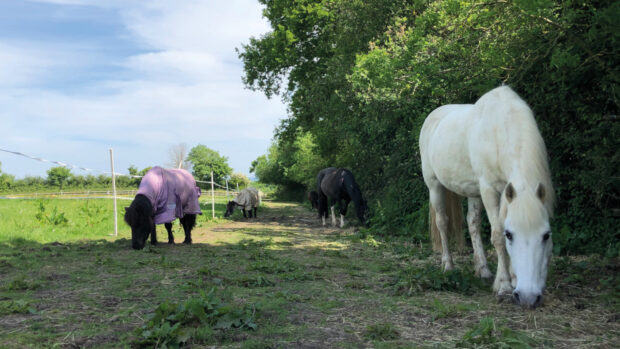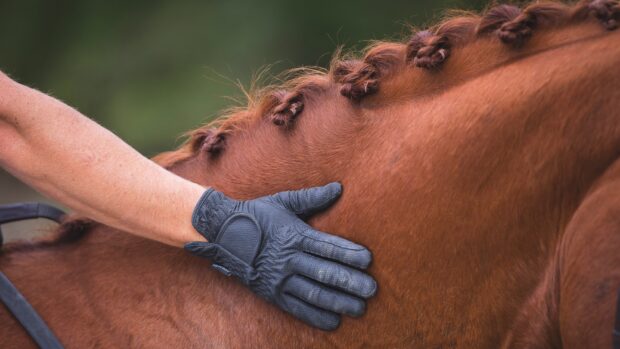Weight tapes can give readings up to 20% off, a study has found, and generally underestimate equine bodyweight, causing concerns about obesity.
Feed manufacturer Dengie carried out the preliminary study comparing accuracy of three weight tapes and comparing values to weighbridge readings. The initial finding is that values vary by 20% or more, “generally underestimating bodyweight, especially on bigger horses”.
In a survey of 650 people in 2021, Dengie found that 72% used weight tapes on their horses.
“Regular monitoring is important as part of a weight management plan to help horse owners track changes in their horses’ bodyweight,” a Dengie spokesman said. “If tapes are generally underestimating a horse’s weight it may well be contributing to the difficulties horse owners have in recognising obesity, which is why Dengie wanted to explore this area further.”
For the study, the team looked at 29 horses, from 13hh to 17.2hh with body condition scores of between 2.5 and 4.5 on the five-point scale.
“Larger horses tended to be underestimated to a greater extent than ponies, with the biggest difference recorded for a 17.2hh mare who was 138kg less on one weight tape reading compared to the weighbridge, a 21% difference,” the spokesman said. “The closest weight tape reading was still 104kg less than her actual bodyweight.”
Overestimation of weight was less common; only five readings were greater than the actual value. This was in line with the results of a 2023 study by Grimwood et al, which used only one weight tape.
“Different tapes were found to vary by up to 10% in their readings for the same horse at the same time, which would equate to a difference of 50kg for a 500kg horse,” the Dengie spokesman said. “Although the study was done on a relatively small scale, it provides further support for the importance of horse owners using the same tape every time when monitoring changes in bodyweight.”
Further work is planned, especially looking at accuracy of tapes for those that are overweight.
Katie Williams, technical and product development manager at Dengie, told H&H: “The key takeaway from the results we have so far is that a weight tape is likely to underestimate your horse’s weight, especially if you have a large horse. Weight taping is still worthwhile in relation to weight management as the relative changes provide valuable insight as to whether they are gaining or losing weight.
“If you have a really large horse, bear in mind that the tape might be underestimating them significantly enough to have an effect when determining how much to feed or using a wormer. If you can, use a weighbridge and compare to your tape so you can see how far out it is. Seek advice from relevant professionals if you suspect your tape might not be accurate.”
You might also be interested in:

Lean horses could be as much at risk of laminitis as fat ones, researchers warn

We must all unite to fight the battle against equine obesity

Subscribe to Horse & Hound magazine today – and enjoy unlimited website access all year round
Horse & Hound magazine, out every Thursday, is packed with all the latest news and reports, as well as interviews, specials, nostalgia, vet and training advice. Find how you can enjoy the magazine delivered to your door every week, plus options to upgrade your subscription to access our online service that brings you breaking news and reports as well as other benefits.




